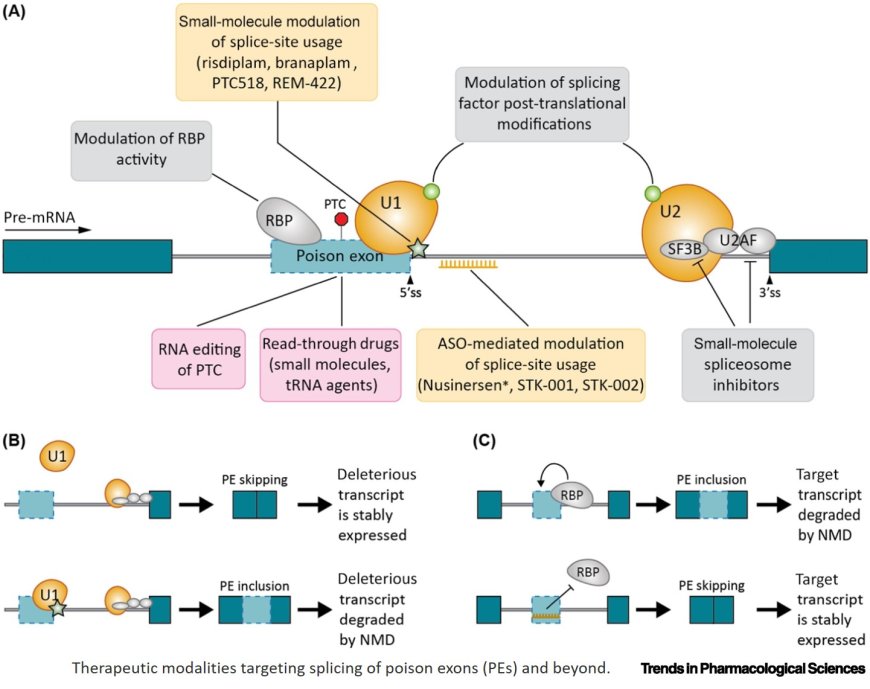Poison exon splicing for targeted gene regulation

Poison exon (PE) splicing contributes to endogenous gene expression regulation and can be targeted for therapeutic benefit.
Aberrant PE splicing stemming from mutations in RNA-binding proteins (RBPs) or splice sites/splicing regulatory elements is associated with a range of diseases.
The landscape of PEs has increased dramatically in recent years owing to increased experimental throughput and computational methods, and offers novel opportunities for targeted therapies.
Targeting PE splicing can enable sequence-specific modulation of genes that are considered to be undruggable via other modalities.
Splice-modulating therapeutics (small molecules and antisense oligonucleotides) have shown promise in influencing PE splicing of select targets, and agents are in different stages of development ranging from preclinical and clinical to approval.
https://www.cell.com/trends/pharmacological-sciences/fulltext/S0165-6147(25)00002-1












